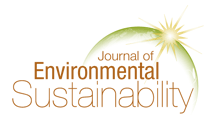Creative Commons License

This work is licensed under a Creative Commons Attribution 4.0 International License.
Abstract
This study investigated the gender barriers to climate change adaptation practices in the semi-deciduous forest zone of Ghana. A mixed methods approach including household surveys with 210 farmers and 14 focus group discussions was employed in seven selected communities in the Ejisu-Juaben Municipality of the Ashanti Region. The following research questions were answered by the study: (i) What are the climate change adaptation practices implemented by male and female farmers in selected communities of the Ejisu-Juaben Municipality to reduce climate risks? and; (ii) What are the barriers obstructing male and female farmers in implementing climate change adaptation practices in the selected communities? Results showed that there were significant differences between farmers’ implementation of climate change adaptation practices including changing planting dates, growing of resistant varieties of crops, growing of short-term harvesting crops and off-farm activities (p < 0.05). Results also showed that gender had statistically significant influence on climate change adaptation barriers including lack of access to credit facilities and high cost of improved crop varieties (p < 0.05). Our results suggest the need for appropriate policy interventions in the agricultural sector of Ghana to boost access to credit facilities and production for household food security. There is also the need for significant funding commitment to rural transport sector to aid agricultural produce transfer from farming centres to market places.
Recommended Citation
Amoah, Evans Amoako; Damnyag, Lawrence; Baffour-Ata, Frank; and Boateng, Dickson
(2021)
"Gender barriers to climate change adaptation practices in semi-deciduous forest zone of Ghana,"
Journal of Environmental Sustainability: Vol. 8:
Iss.
1, Article 6.
Available at:
https://repository.rit.edu/jes/vol8/iss1/6
